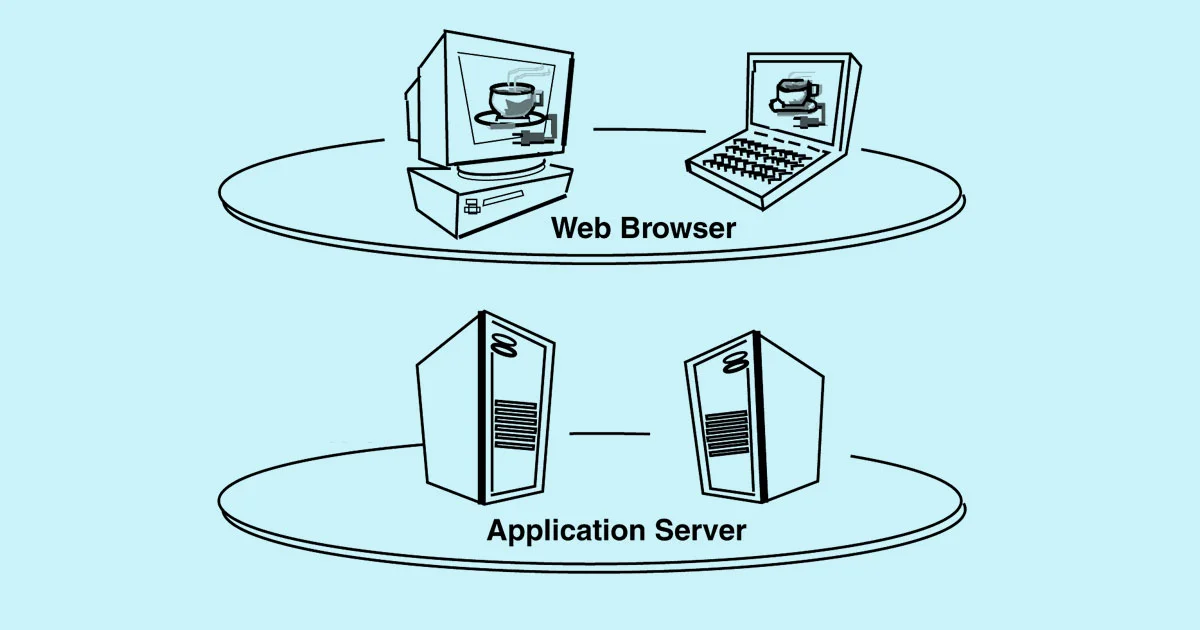Introduction
In today’s digital era, web servers and application servers play crucial roles in the functioning of websites and web applications. Although they both involve server-side technologies, there are significant differences between these two types of servers. Understanding these distinctions is essential for developers and system administrators who are responsible for managing and optimizing web infrastructure. In this article, we will explore the disparities between web servers and application servers, their architectures, functions, advantages, performance, security, and scalability.
Web Server vs Application Server
When it comes to understanding web servers and application servers, the key distinction lies in their primary purposes. A web server primarily handles the delivery of web content, serving static files such as HTML, images, CSS, and JavaScript to client browsers. On the other hand, an application server focuses on executing dynamic application logic and provides an environment for running applications and supporting business processes.
Web Server Architecture
Web servers are designed to fulfill client requests, following the client-server model. They typically consist of a hardware infrastructure and software components. The hardware includes servers, storage systems, and network equipment, while the software stack comprises the operating system, web server software, and necessary protocols like HTTP. Web server architecture generally employs a single-threaded or multi-threaded approach, where each client request spawns a new thread, allowing concurrent handling of multiple requests.
Application Server Architecture
Unlike web servers, application servers are more complex and provide extensive middleware functionality. They act as a bridge between the user interface and databases or other back-end services. Application server architecture incorporates additional components such as database connectivity, messaging systems, security mechanisms, and transaction support. This allows them to handle business logic processing, object management, and session management in addition to serving web-based content.
Web Server Functions
The main function of a web server is to respond to HTTP requests from clients by delivering static content. It receives GET and POST requests and responds accordingly by providing HTML pages or files requested. Web servers also handle web traffic management, load balancing, and caching to optimize performance. Additionally, they can support server-side scripting languages like PHP or Python, enabling dynamic content generation.
Application Server Functions
Application servers are responsible for executing dynamic application logic. They provide an environment for deploying, running, and managing applications. Application servers facilitate features such as session management, database access, user authentication, and integration with other enterprise systems. They offer robust frameworks and APIs that developers can utilize to build and deploy complex, data-driven applications.
Web Server Advantages
Web servers offer several advantages. They are lightweight, fast, and have low memory usage due to their primary focus on handling static content. Furthermore, they require less configuration and maintenance. Web servers are compatible with a wide range of programming languages, making them ideal for hosting simple websites or serving static files efficiently.
Application Server Advantages
Application servers bring significant advantages in terms of scalability and flexibility. They provide a platform-independent runtime environment that supports multiple programming languages. Developers can leverage various frameworks and libraries to build complex applications easily. Moreover, application servers offer more extensive security features, integrating with enterprise security tools and allowing for fine-grained access control.
Web Server Performance
When it comes to performance, web servers excel at serving static content quickly. They are optimized for high-speed content delivery and can handle a large number of concurrent requests efficiently. Web server performance can be further enhanced through caching mechanisms, load balancing, and content compression techniques.
Application Server Performance
In terms of performance, application servers focus on executing dynamic application logic efficiently. They may involve additional overhead due to the complexity of middleware components and database integration. However, application server frameworks provide optimizations and tuning options to ensure optimal performance despite the added layers.
Web Server Security
Web servers face potential security threats, such as unauthorized access, DDoS attacks, and data breaches. Therefore, web server security remains a critical concern. Implementing security measures like HTTPS encryption, firewalls, and intrusion detection systems helps safeguard web servers against these threats. Regular security audits, patch management, and secure coding practices contribute to maintaining a secure web server environment.
Application Server Security
Application servers, being more comprehensive in functionality, require robust security measures. They must ensure the integrity and confidentiality of sensitive data processed by applications. In addition to web server security practices, application servers incorporate role-based access controls, secure authentication mechanisms, and encryption methods. Auditing and vulnerability assessments are also crucial aspects of ensuring application server security.
Web Server Scalability
Web servers are built to be highly scalable. They can handle a large number of concurrent connections and effectively distribute incoming requests among available resources. Load balancing techniques, such as round-robin or least connections, further enhance web server scalability. Additionally, caching mechanisms and content delivery networks (CDNs) improve performance and scalability by reducing server load.
Application Server Scalability
Similar to web servers, application servers aim for scalability to accommodate growing user demands. They scale both vertically, by upgrading hardware resources, and horizontally, by adding additional servers to distribute the load. Application server clusters, load balancers, and session management techniques ensure efficient resource utilization and high availability.
Conclusion
In summary, web servers and application servers have distinct roles and functionalities. Web servers primarily focus on delivering static web content, while application servers execute dynamic application logic. Each type of server has unique architecture, functions, advantages, performance considerations, security concerns, and scalability options. Understanding these differences is crucial for selecting the appropriate server type based on specific requirements and optimizing the overall web infrastructure. Whether it’s a simple website or a complex enterprise application, choosing the right server architecture is key to providing optimal performance, security, and scalability.













